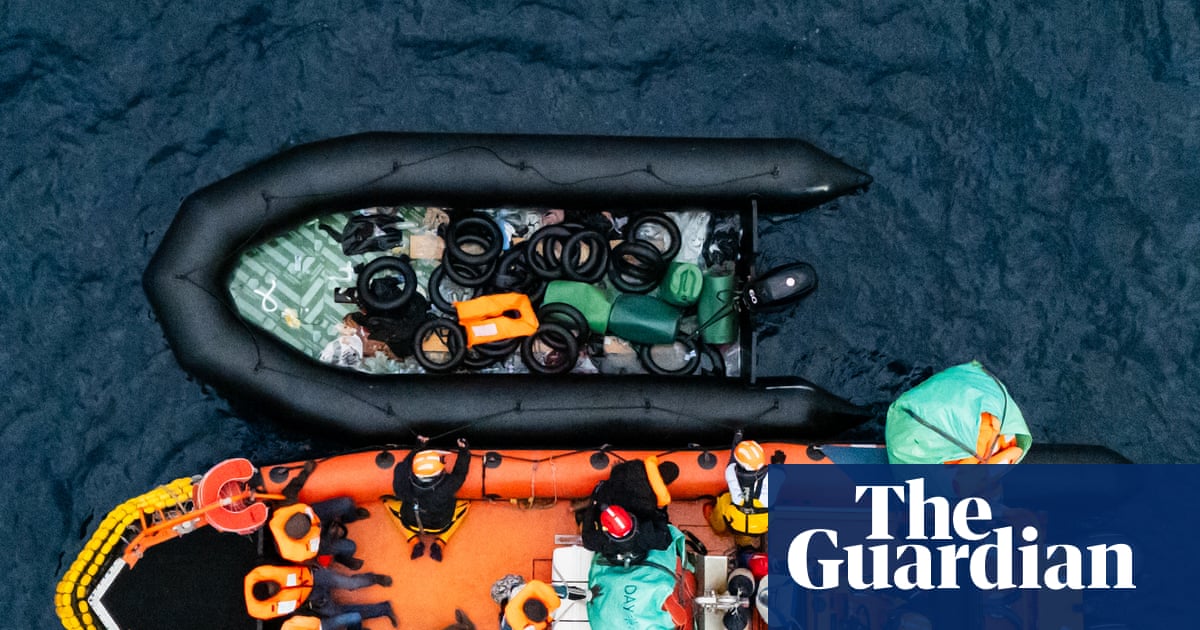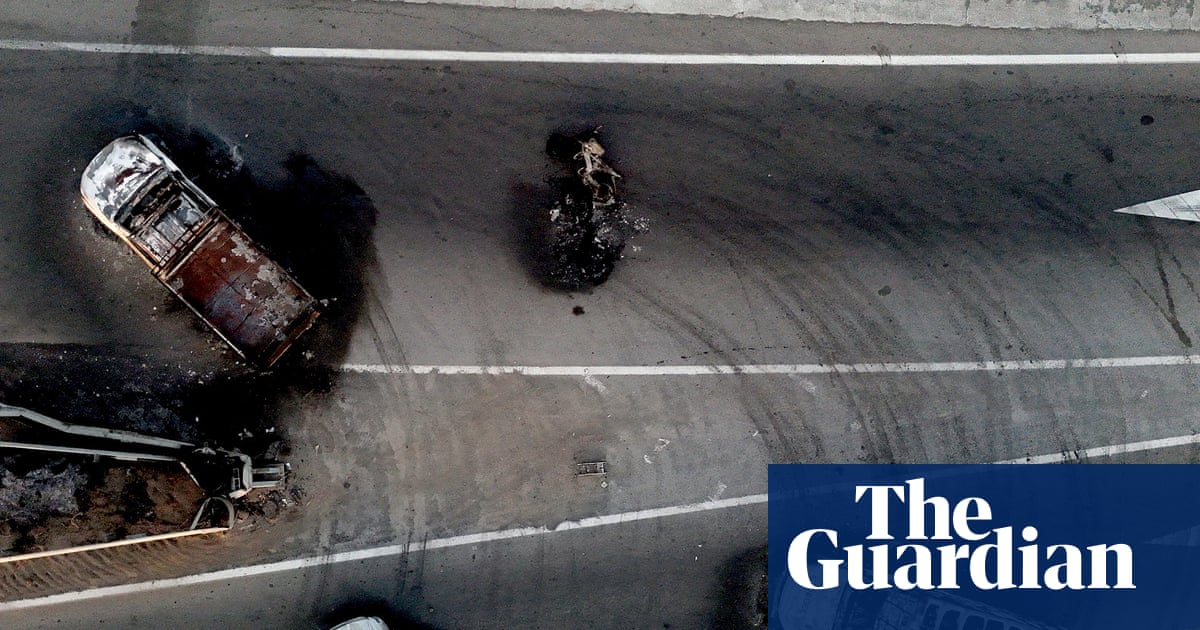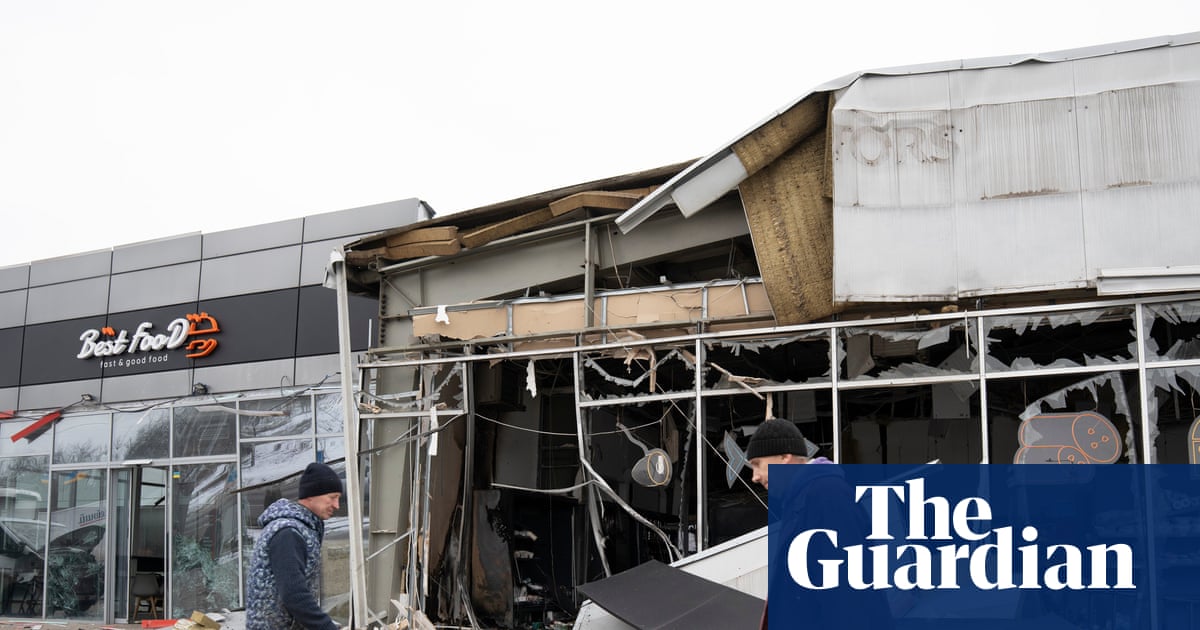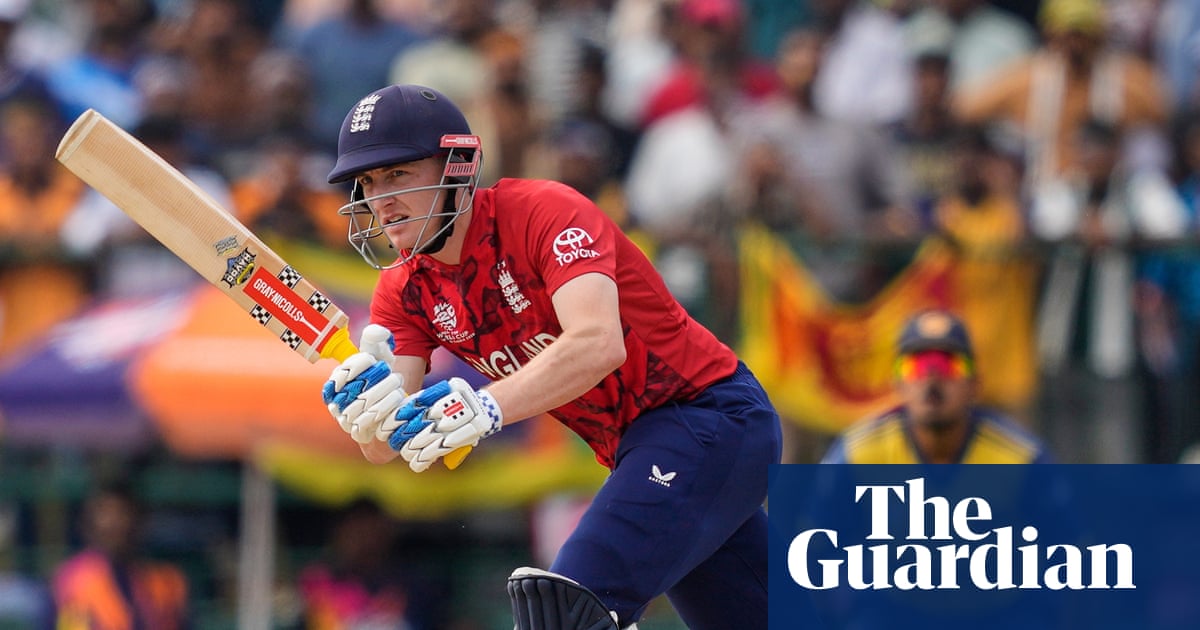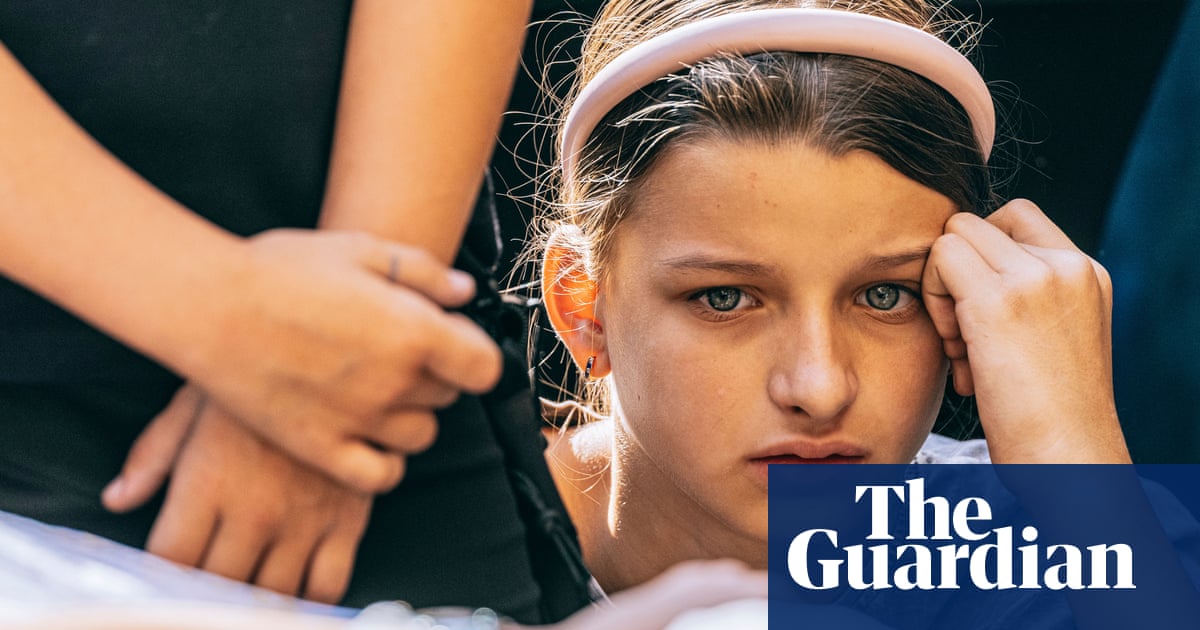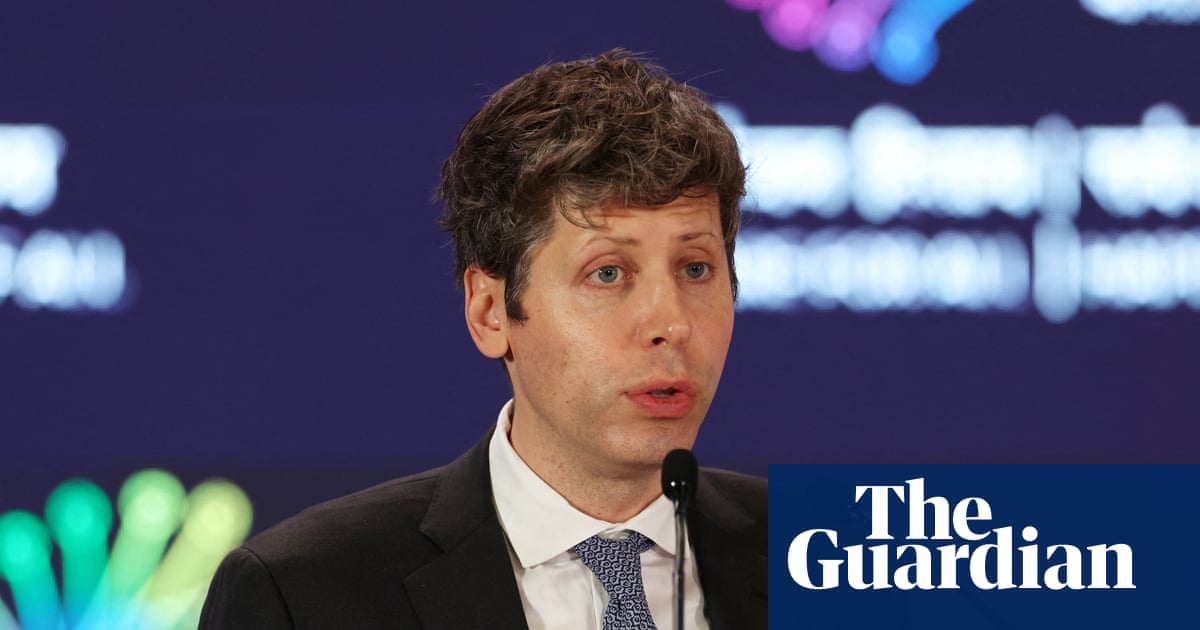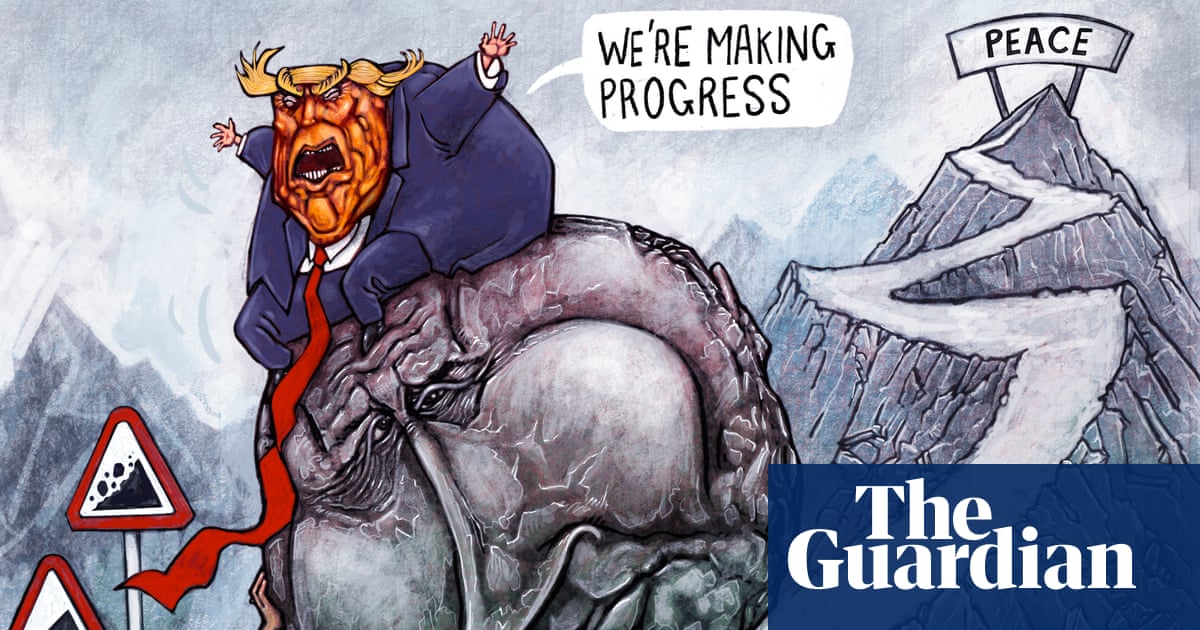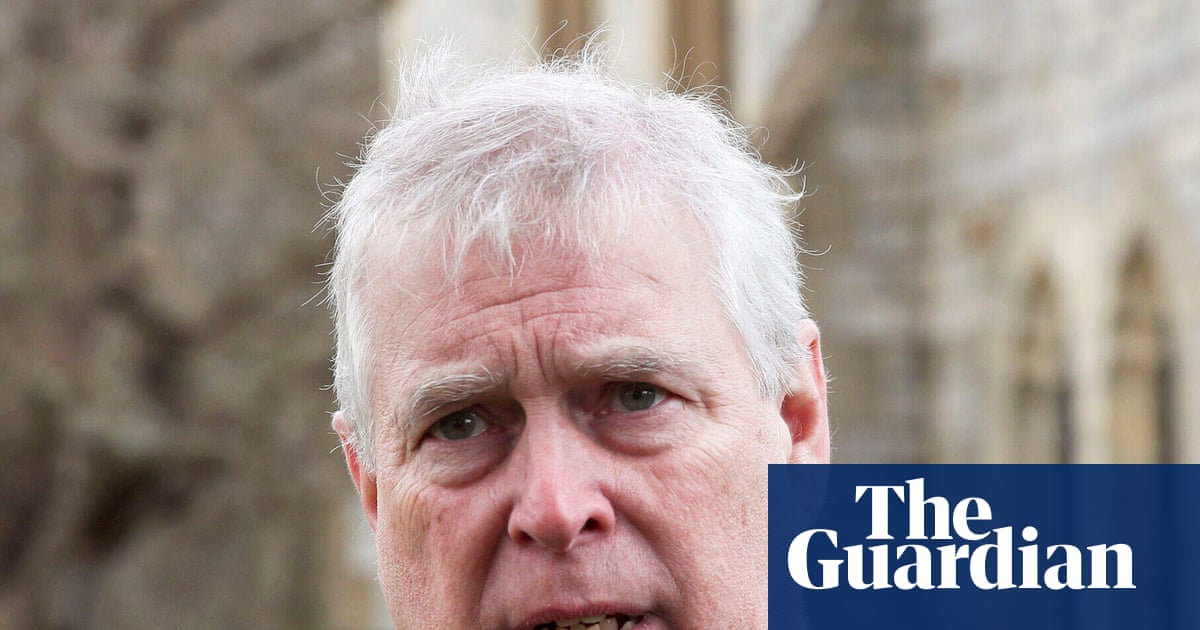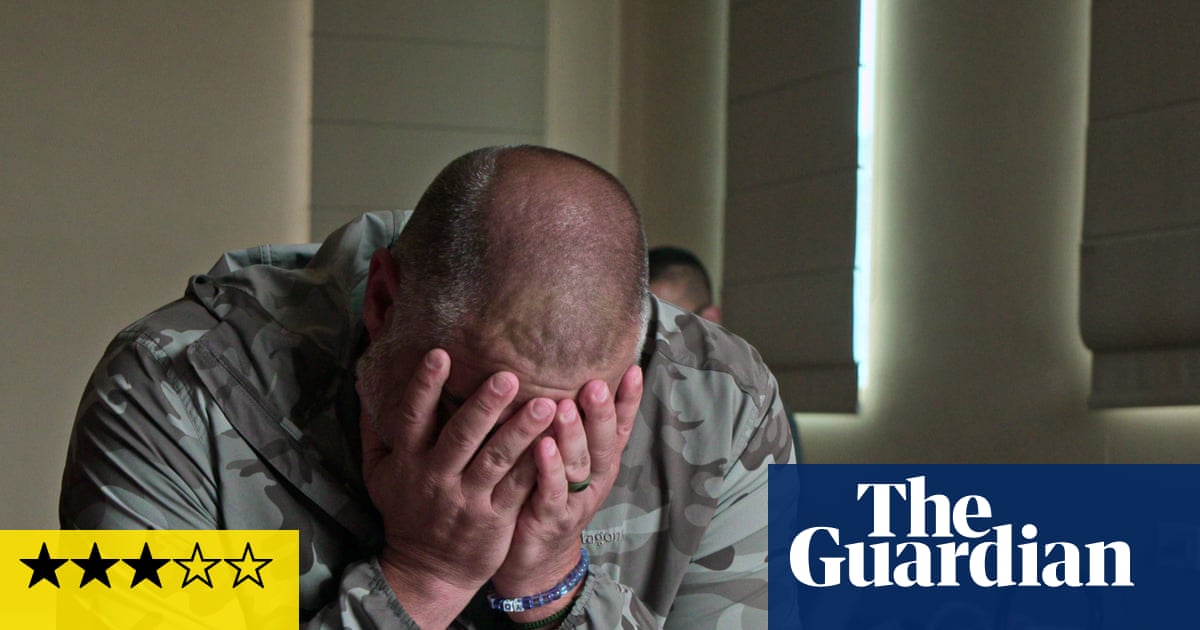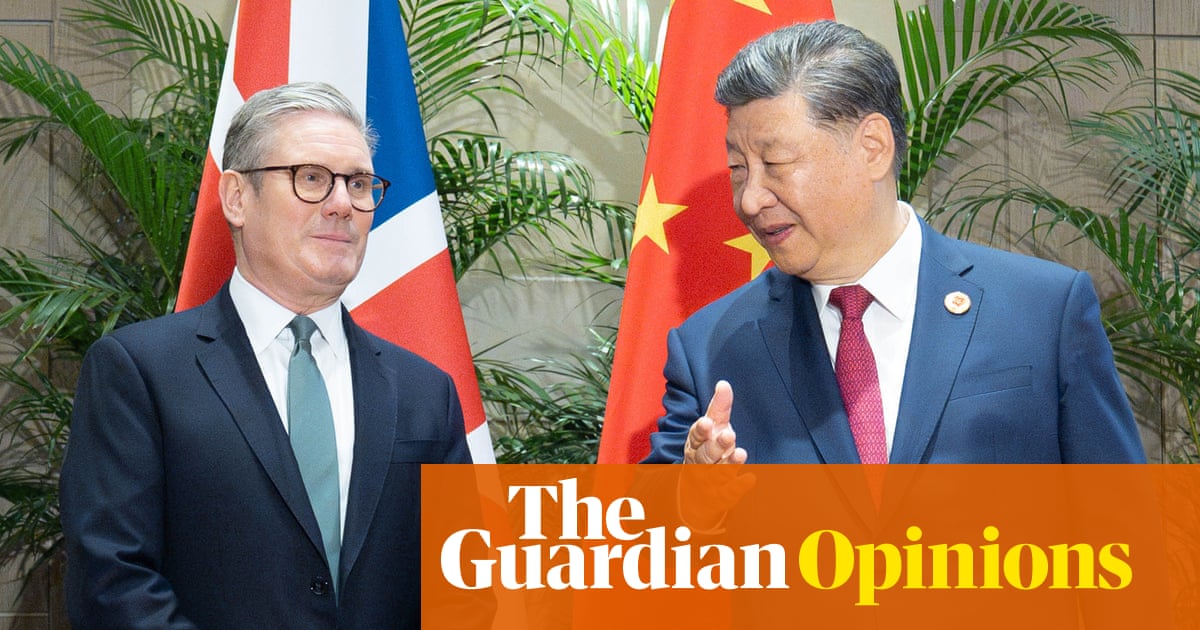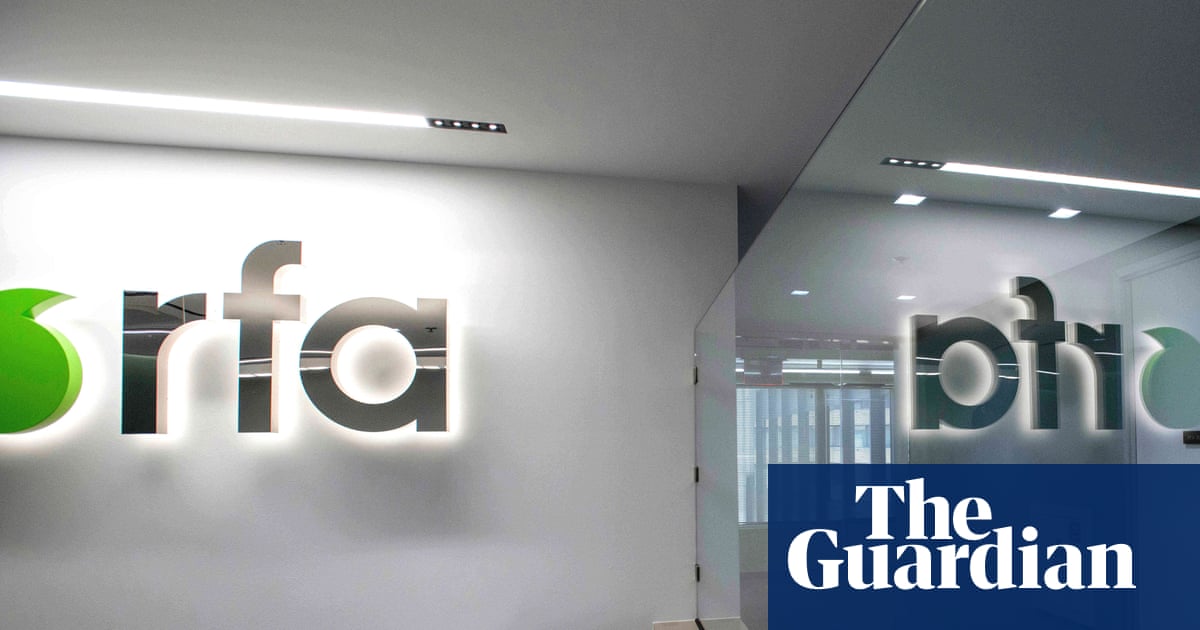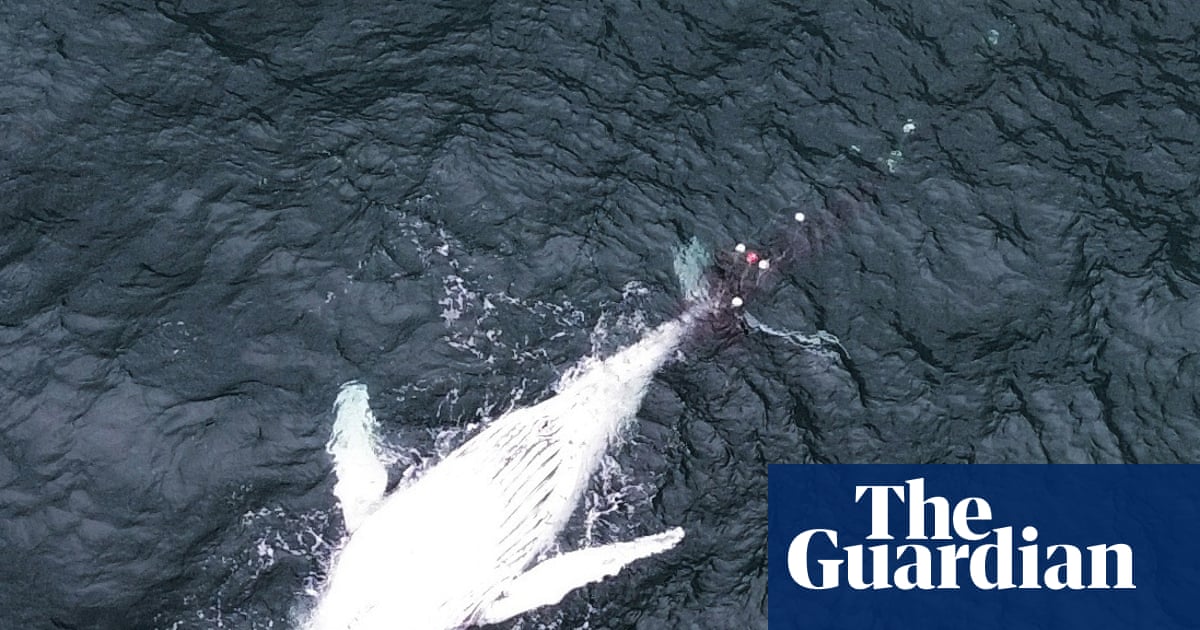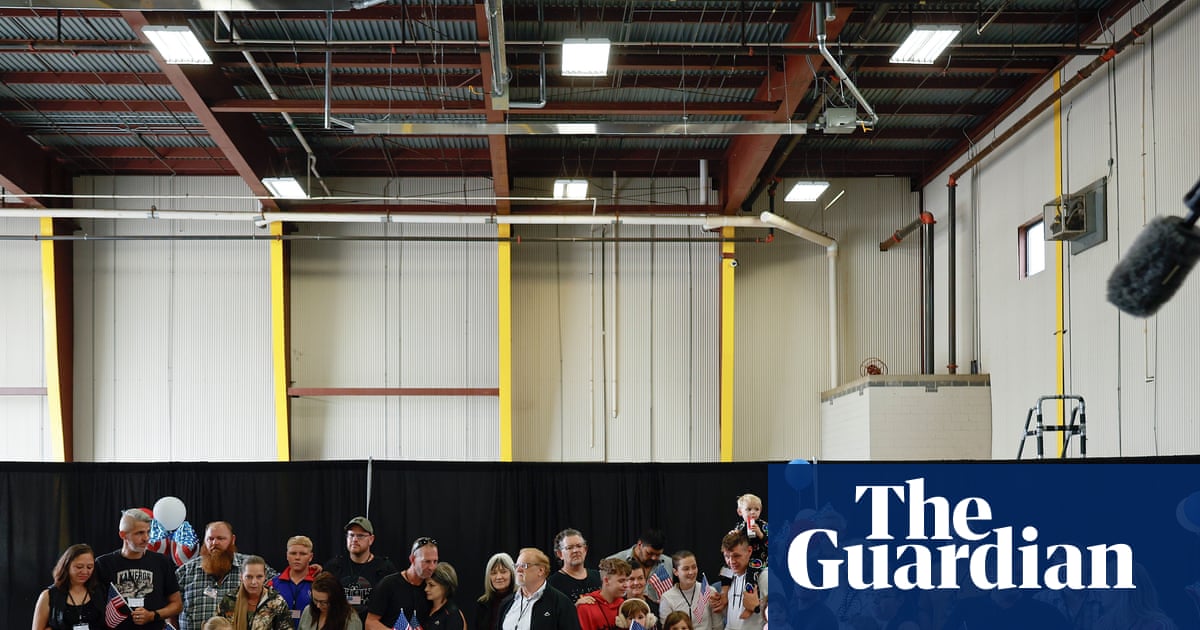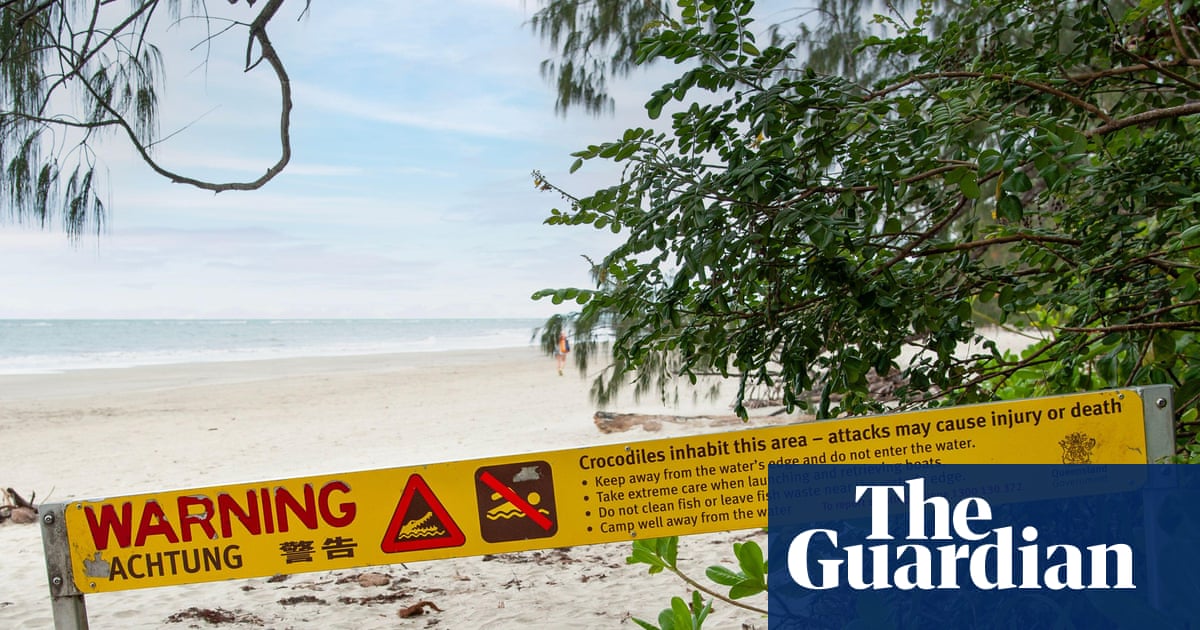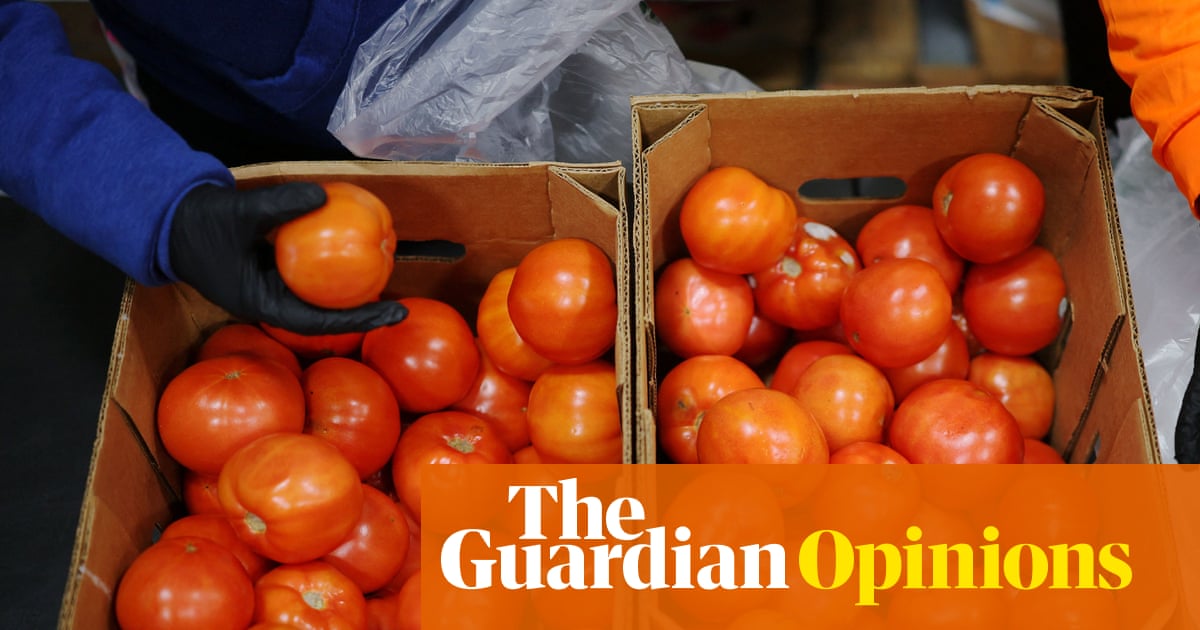The fishing quay on the beach at Joal is usually so crowded with women dealing with the day’s catch that you can barely glimpse the sea. But today it is quiet, just an expanse of broken shells and plastic bags that leads down to the water’s edge.
Last night, as is increasingly common here on Senegal’s coast, there was a storm and heavy rain so the men could not go to sea safely in their open wooden fishing boats, known as pirogues. Many houses were flooded, so women stayed at home for the day, baling out bedrooms and dealing with the aftermath. Times are tough.
Life feels increasingly precarious, “like I’m holding on to nothing”, says Adama Faye, 29. Her husband fishes, and when he and his colleagues can get out to sea, industrial trawling means their catches are small.
Today, Faye is one of a throng of women at the local health clinic. A team from MSI Reproductive Choices is in town, as part of a UK-funded programme.
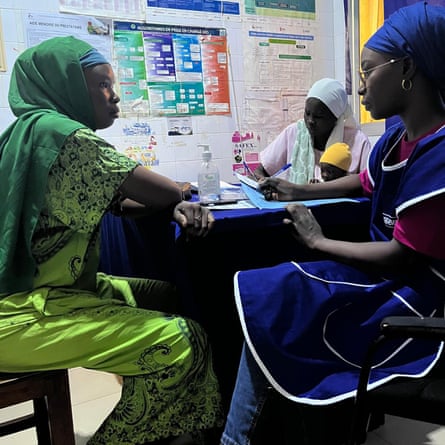
MSI comes to the area once every couple of months, offering women contraception to prevent the life-threatening back-to-back pregnancies that have been the norm here. Having a measure of control over the babies they have means women can work, and not be reliant on the men and their dwindling fishing incomes.
But aid cuts are threatening that lifeline. As women wait in seats lining the corridor, community workers talk to them about their options. A coil – also known as an intrauterine device (IUD) – which is fitted in the womb to prevent pregnancy, is passed along the line of women. There is relief that it is small and light – it is colloquially known as an “appareil”, the same French word used for a phone or a camera.
“The women here are warriors,” says Amy Mbaye, 28, the midwife in charge of the health post, who has worked there for almost a decade.
Women here tend to have nine or 10 pregnancies, including two or three miscarriages or stillbirths, she says. She can reel off a list of the risks posed by multiple pregnancies close together: severe anaemia, higher rates of miscarriage and maternal deaths.
Abortion is illegal in Senegal, so unsafe backstreet terminations are rife.

Mbaye can see the town getting poorer. “Everything is linked to the sea,” she says. “Too often you will call a woman to come for a checkup and she will say ‘there’s nothing coming out from the sea so we don’t have enough, I can’t come’.”
MSI is the only organisation that comes here regularly, she says. Senegal is a poor country of nearly 19 million people, struggling with debt and a lack of natural resources; government funding is unreliable.
The clinic lacks basic supplies such as medical gloves to prevent the spread of infection. It is a dilapidated building, where several buckets are catching leaks, but is the first port of call for a population of 28,000 people – about 7,000 of whom are women of reproductive age.
Coumba Dieng, 52, can also feel the community getting poorer. She has a business selling meals to the men when they return from fishing at sea.
Once, people would eat a proper meal at lunch and at dinner, she says – now it is once a day. In the evening, most of her customers will choose fondé, a cheap millet porridge.
She remembers how, as a newlywed in the 1990s, her neighbours would share their catch, bringing her a big fish with no expectation of payment.
“Now, if I want to cook thieboudienne [Senegal’s national dish of fish and rice], I have to go to the market and buy the fish. And it is expensive,” she says.
Dieng has seven children, with gaps as little as nine months between them. The succession of pregnancies hit her health, she says. She developed high blood pressure and felt weak.
Shortly after she had her youngest child six years ago, the MSI team fitted her with a copper coil. Without MSI, she says, she would have had to pay about £20 to cover consultation fees and the cost of the device – more than she made in a week.
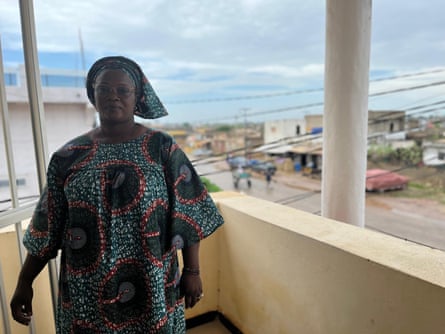
The effect, she says, was transformative. Her coil “means I can work”. She had the confidence to take out a £400 bank loan, which has now nearly been paid off, to expand her business. She felt stronger and able to cook bigger pans of food, so there was more to sell.
MSI is working on a British-funded programme called Women’s Integrated Sexual Health (Wish) 2, part of a consortium delivering Wish 2 across the Democratic Republic of the Congo, Mali, Niger, Senegal, Chad and Mauritania, with a budget of £60.9m.
Wish 1 ran between 2018 and 2024, but was undermined by aid cuts under the previous Conservative government. According to MSI, an initial annual budget of £30m dwindled to just £6.7m. The programme contracted from 12 countries to eight, and the number of women reached fell from 2 million to 200,000.
People are waiting to see how deep the cuts will be this time round after the UK’s current Labour government said it would slash the aid budget further to fund higher defence spending.
In Senegal, the scheme is anchored in trusted members of the community going from door to door to find women who could benefit from the service, talking to them and their husbands about the benefits of spacing pregnancies.
Ndawa Thiam and Coumba Dieye carry out that work on the fishing quay. They are called bajenu gox, sometimes translated as “neighbourhood godmother”.
“The sea is not giving us the resources it used to,” Thiam says. These changing circumstances now have cultural implications in their community.
The expectation here, she explains, has always been that a woman should have as many babies as she can and her husband has the final say. But “the economic situation has changed this view and dynamic, and so women are taking responsibility,” she says. “Taking contraception – to be able to work and provide.”
after newsletter promotion
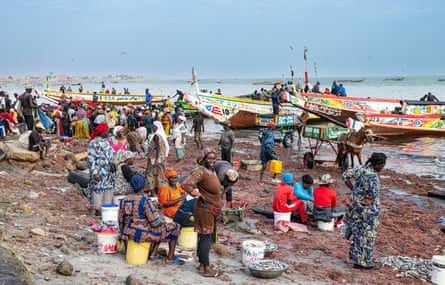
Spacing pregnancies keeps women healthier, they stress. There is no health insurance or free healthcare – if someone gets sick there might be a communal whip-round on the quay to help, but everyone is struggling.
Thiam gestures to where a small crowd has gathered, sitting on sandbags and upturned buckets to hear an MSI team offer advice on family planning and preventing sexually transmitted infections (STIs). In the old days, she says, no woman would be sitting still, everyone would be working. But it has been days since the pirogues could get out to sea.
The group starts to talk about illegal migration – it happens a lot here. “We have lost a lot of our men to the ocean. It is now a cemetery,” says Thiam.
On days when the Wish team are in town, the community workers come to the health post to make sure the women they referred there have turned up. Some share their personal experiences, prompting laughter up and down the corridor when they hint at improved sex lives.

Faye has opted for the coil – she likes the fact it seems more natural, she tells MSI’s team. Her month-old baby asleep on her lap, she admits she only heard about the option of modern contraception at a postnatal checkup earlier in the week. She has a six-year-old and a three-year-old at home, and wants another three-year gap before having any more children.
As she is having the IUD inserted, the health centre’s lights go out. Power cuts happen frequently and Fatim Koita, coordinator of MSI’s regional outreach team but today working as a midwife, switches without fuss to a phone’s torch to continue.
Faye is now protected for up to 10 years. Though she is not working at the moment, but she used to be a maid. She hopes her contraception will help her find different work, perhaps in sales. “I’m good at selling things,” she says. She needs to provide for a large family – her children, her mother, brothers and sisters, and “to support” her husband.
Over the course of the day, 45 women and girls will receive some form of contraception. Most choose long-lasting options that offer years of protection, such as the hormonal implant inserted below the skin on the arm, or a copper coil that sits in the womb. Another 18 are screened for cervical cancer and six are treated for STIs.
Koita coordinates MSI’s outreach teams in Thiès region, and in neighbouring Fatick. Communities all over the area are dealing with poverty, fragility and financial and geographic barriers to health services.
Floods may cut them off entirely, or mean a whole village is displaced, she says. The outreach teams are operating 22 days a month. “Without this team, you are not going to reach these people,” she says.
Senegal’s government, which was elected amid much hope early last year, has set ambitious targets to reduce maternal mortality, and increase the proportion of women on modern contraception from 27% to 46% by 2028.
In his office in Dakar, Dr Amadou Doucouré, head of the maternal and child health department, says there are plans to increase resources, but adds: “Even if we have domestic resources, we still need the support of partners … this is about saving lives.”
MSI covers about 20% of reproductive healthcare funding in Senegal, with 40% of its funding coming from the UK’s Foreign Office.
Cuts to international aid, particularly from the United States Agency for International Development (USAID), are already having an impact in the country, and MSI is being asked to step in and fill the gaps, says Emmanuel Diop, MSI’s country director.
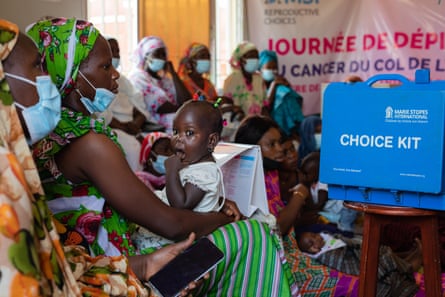
USAID was responsible for most of the contraceptive supply chain and Jadelle, the brand name of a contraceptive implant, is now out of stock in the Senegal government’s pharmacy. MSI teams are having to scrape together a supply from implants that had already made their way to health centres and local pharmacies.
Family planning in Senegal, says Diop, is about “saving lives”. But also “about having time for a job, and building the future for your family”.
A woman with five or more children “doesn’t need to have another at a difficult time”, he says.
The Wish programme can empower women and give them a rare chance to make a decision about their body and life, he says. “That’s not something exotic. It’s not a luxury. It’s a necessity … if they make this cut, they are cutting a necessity.”

 3 months ago
60
3 months ago
60




